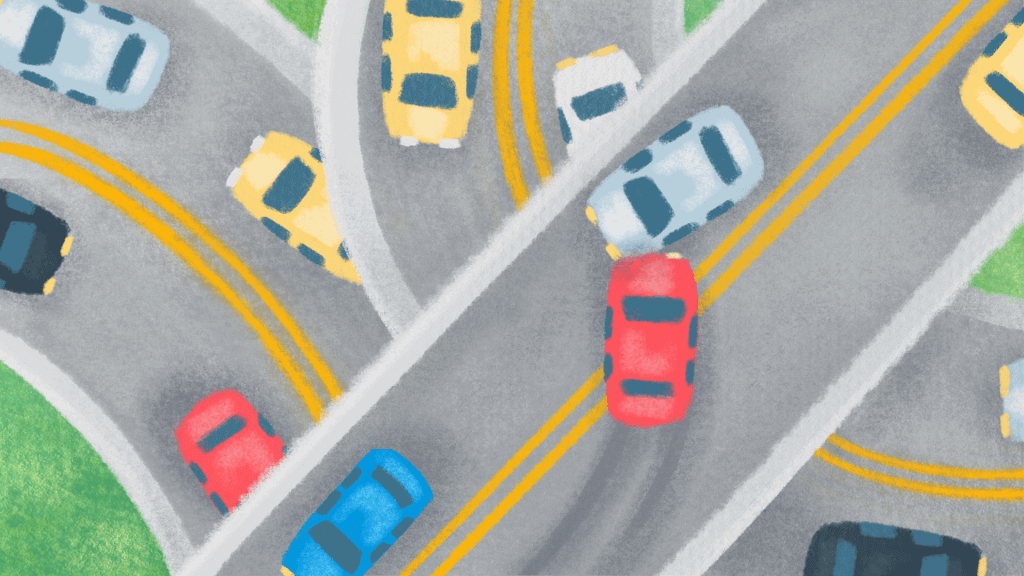
Auto Insurance
October 1, 2021Auto insurance is not only often a legal requirement, it’s also absolutely vital to your financial health.
The truth is that car accidents are expensive, and it’s not just the price of fixing a bumper or headlight. Accidents can incur medical bills, repair costs, and even lawsuits and if you’re not protected, you could be on the hook for all the costs—especially if you’re the one found at fault. It’s not just about being a good driver, but making sure you’ve planned ahead so that you can commute, road trip, and joy ride without worrying about what it could cost you.
Coverage Components
Think of auto insurance as ordering off a fast food menu: You have lots of components that you can choose to make your perfect meal—or coverage. Most states require at least some type of insurance coverage before you’re legal to drive, but available add-ons or additional coverage can give you even more protection. It’s important to understand each of the components separately before asking your insurance agent to help you “order.”
- Personal injury or personal liability. This is the most common type of insurance states require, at minimum, to let you on the road. It’s meant to protect you in an accident where someone is seriously injured or killed and you were the person at fault. The amount of coverage you have is usually calculated based on your assets. Your insurance agent can help make sure you have the right level of coverage.
- Property damage. Another common type of coverage required by states, this covers you in case you’re at fault and damage someone else’s stuff. In most cases, the property is a car, but it’ll also cover you if you damage something like a fence or utility pole, too.
- Collision. Car accidents don’t always involve another driver. If you have damage to your car that was caused by a collision with a parked car, a wall, or anything else where you’re the only driver, collision insurance covers you. If you have an auto loan, your bank might require you to carry collision insurance to protect them in case you do serious damage to a car they technically own.
- Uninsured or underinsured driver. You hope that everyone is as diligent as you when it comes to choosing the right level of auto insurance. Unfortunately, that’s not always the case, which is why insurance companies offer uninsured insurance. It covers you if the person at fault doesn’t have insurance or doesn’t have enough insurance to fix your car and pay for your medical expenses.
- Comprehensive. Not all auto mishaps are crashes. Comprehensive insurance protects you against other issues, including theft, fire, weather-related incidents, falling objects, vandalism, and even damage done by animals. It fills the gaps to ensure you’re covered even if your car damage isn’t the result of a collision.
Paying for Coverage
Once you’ve determined what coverage is required by your state and what coverage you’d like to add onto your “order,” you’ll need to understand the difference between your premium and your deductible. Your premium is the amount your insurance costs annually. It’s determined by a combination of the types of coverage you want and the information from your driving record. If you’re what’s seen as a “risky” driver by your insurance company (think previous accidents or tickets), your premium will likely be higher than someone seen as less risky. Most people pay their insurance premium on a monthly basis.
Some of your coverage might be subject to a deductible. The deductible is an amount you’re responsible for before your insurance steps in and pays the rest of your claim. If you have a $500 deductible for your collision insurance, for example, and you drive into your garage door, you’ll be on the hook for $500 of the repairs before insurance pays anything else.

Sometimes, you can score a lower premium by choosing a higher deductible. But it also means that you run the risk of paying a higher amount out of pocket if you have an accident. A lower deductible usually means a higher monthly premium, so it’s definitely worth talking to your insurance agent to choose the best option. You might also be eligible for discounts if you have more than one car or you have a stellar driving record, so there are ways to make insurance more affordable.
With a giant menu of auto insurance coverage in front of you, it can definitely be confusing. You want injury protection, but would you like comprehensive with that? The trick is to choose the coverage you can afford to feel protected before you hit the road—or the drive thru.
This article has been republished with permission. View the original article: Auto Insurance.
